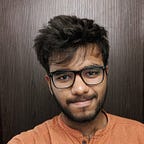Reading makes Humble
Wrote the author, bragging.
In a stroke of musical genius, Kendrick Lamar said, ‘Bitch sit down, be humble.’ But how must the aforementioned bitch go about being humble? My opinion is to read.
A year ago, I used to be insufferable in discussions. I was the worst kind of smart. I was smart enough to point out fallacies, without contributing much as relevant knowledge. Twisting arguments was a chance to flex my brain muscles. Little did I realise, my brain was just a skinny little boy. It wasn’t pretty. I then took up reading.
The Dunning-Kruger effect is a cognitive bias which maps out the relation between our confidence and our knowledge.¹
Initially, there is a rapid spike in our confidence. It is fuelled by optimism and an ignorance of complexity of the topic. As we delve further, we are exposed to the various nuances. Overwhelmed by our gross misunderstanding, our confidence takes a rapid fall. Ironically, only when we become true experts, does our confidence rise to the level when we knew nothing.
I was not spared the effect of the bias when I started reading. I ascended Mount Stupidity at a pace Edmund Hillary would have been jealous of. I spewed the same half baked opinions, now with a lot more confidence.
On reading further however, I fell off a cliff into the Valley of Despair, and set up home. I found different perspectives on issues I had read in earlier books. Surely, all of them couldn’t be correct. It sent me into a spiral wondering if there was any point in reading if everything is going to contradict itself. As any intelligent human, I ate ice-cream to get over this existential crisis.
We like to think the world around us is rational and grounded in ‘facts’. However, we hardly stop to think where do the ‘facts’ come about. They weren’t simply lying in the group which we dug up. They are a set of propositions, agreed upon by a majority of professionals and public. But what if the experts are wrong themselves? They are human after all.
The doctor who suggested surgeons washing hands before operations was ridiculed for suggesting so.² His idea ended up saving more lives than any medical equipment. It makes one wonder what ridiculous assumptions we hold onto currently.
We assume in the golden age of information we can not possibly be wrong. Every generation suffers from the same bias. They believe they have exhausted possibilities of further invention. Max Plank was advised not to pursue Physics, saying there was not much left to discover.³ Plank then went on to revolutionise Physics. We forget the way we ridicule the way of our ancestors, the future generation will ridicule ours. Being laughed at by your unborn grandchild who still poops his pants sure does humble one.
There is wisdom to be gained irrespective of what one reads. Reading history makes one grateful for the progress we have achieved, despite all the atrocities. Sci-fi opens our minds to the possibilities of what is possible, inspiring hope and a sense of mission. Murder-mysteries makes us realise the murderer was not all that different from the rest. It makes us aware of our own potential for evil and humbles us into a righteous path. Reading anything Chetan Bhagat wrote teaches us how not to write.
Jordan Peterson said, ‘We think so that our ideas can die instead of us.’⁴ Thinking helps us make errors in our minds, so that we need not make them in reality. Knowing the probability of health diseases scares us into taking better care of ourselves.
Reading at its core is slowly killing our ideas, to give birth to new ones. The angry German philosopher Nietzsche said, ‘That which does not kill us, makes us stronger.’ More our ideas can withstand the onslaught by reading, more resilient they become. It is a mini-evolution at play in our brains. The strong ideas live on, while the weak ones die. After witnessing the death of so many, our brain can not help but be grateful and cherish the ones who live to survive another day.
A book is generally years of effort put in by the author. In today’s age of expediency, we trade quantity for depth. Reading puts the effort of creation into perspective. An author putting forth arguments in a book is similar to a painter painting layers of colours on canvas. It is one painstaking task at a time, to build something magnificent in the end. It is the reason why people often break down into tears while looking at a great piece of art. They are overwhelmed by recognising even genius is not spared the expense of effort.
We often forget we all are basically chimps who know to make good coffee. Throughout human history we have been wrong so many times, it is a wonder we are barely alive at all. We get lost among the trees that we fail to see the forest. Reading helps provide the bird’s eye perspective to have a look at that forest.
The purpose of knowledge is not to make us sure, just less unsure. All Socrates needed to say to be hailed as the smartest man was, ‘All that I know is that I know nothing’. Go figure.
